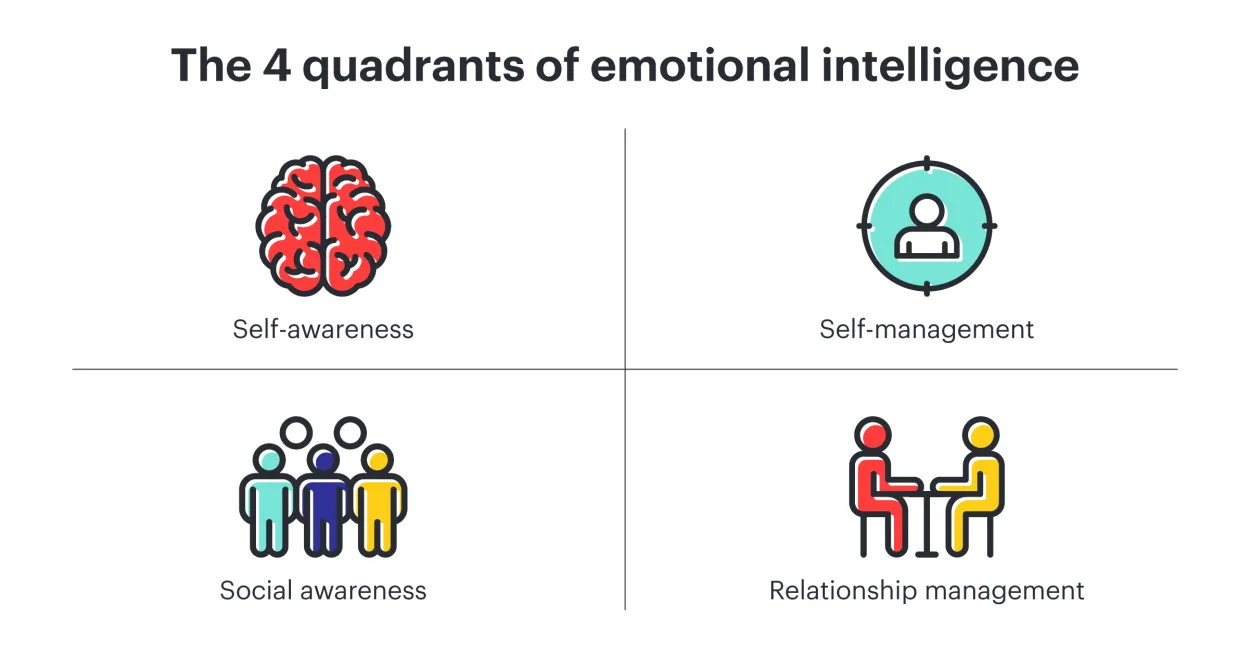The impact of emotional intelligence on business leadership is a topic of growing interest and importance. In today’s fast-paced and highly competitive business world, leaders who possess strong emotional intelligence skills are more likely to succeed and inspire their teams to achieve exceptional results.
Understanding the Role of Emotional Intelligence
Emotional intelligence plays a crucial role in effective business leadership. It refers to the ability to recognize, understand, and manage our own emotions, as well as the emotions of others. In the context of business, emotional intelligence enables leaders to navigate complex interpersonal dynamics, build strong relationships, and make informed decisions. It goes beyond traditional measures of intelligence, such as IQ, and encompasses skills like empathy, self-awareness, and adaptability.
Emotional intelligence empowers leaders by allowing them to establish a positive work culture and motivate their teams. Leaders with high emotional intelligence are adept at resolving conflicts, promoting collaboration, and inspiring trust. They can effectively communicate their vision and goals, which fosters employee engagement and productivity. Additionally, emotional intelligence helps leaders respond to challenges and setbacks with resilience, enabling them to find solutions and maintain a steady course even in turbulent times.
Furthermore, emotional intelligence equips leaders with the ability to connect with their employees on a deeper level. By understanding the emotions and perspectives of others, leaders can create a supportive environment that encourages open communication. This promotes creativity and innovation within the workforce, as employees feel valued and empowered to share their ideas. Through effective emotional intelligence, leaders can also better gauge and address the needs of their team members, resulting in higher job satisfaction and retention rates.
In conclusion, emotional intelligence is a critical component of successful business leadership. By cultivating emotional intelligence skills, leaders can elevate their effectiveness by building strong relationships, fostering a positive work environment, and driving innovation. In the ever-evolving business landscape, emotional intelligence is essential for leaders to navigate the challenges and complexities they face, ultimately leading to improved organizational performance and success.
Developing Empathy and Self-Awareness
Emotional intelligence (EI) plays a crucial role in effective business leadership. One key aspect of EI is the development of empathy and self-awareness. Empathy allows leaders to understand and connect with their employees on a deeper level, fostering stronger relationships and enhancing teamwork. By putting themselves in others’ shoes, leaders are better equipped to address concerns and provide support.
Self-awareness, on the other hand, enables leaders to recognize and manage their own emotions effectively. It allows them to stay calm under pressure, make rational decisions, and communicate more clearly. Leaders with high self-awareness are also open to feedback and continuous self-improvement, setting a positive example for their teams.
Developing empathy and self-awareness can be achieved through various strategies. Leaders can actively listen to their employees, showing genuine interest in their ideas and concerns. They can also practice mindfulness techniques to better understand their own emotions and reactions. Additionally, seeking feedback from trusted colleagues or mentors can provide valuable insights into blind spots and areas for growth.
By prioritizing the development of empathy and self-awareness, business leaders can create a supportive and inclusive work environment. This, in turn, leads to improved employee satisfaction and engagement, ultimately driving better business results. Employing emotional intelligence in leadership is a continuous journey, but the impact it has on both individuals and organizations is worth the effort.
Building Strong Interpersonal Relationships
In the world of business leadership, strong interpersonal relationships are essential for success. These relationships are built on effective communication, trust, and emotional intelligence. Emotional intelligence plays a crucial role in fostering positive relationships and has a significant impact on business leadership.
Effective Communication
One of the key elements in building strong interpersonal relationships is effective communication. Leaders with high emotional intelligence are able to understand and convey their thoughts and feelings clearly. They are skilled at both active listening and articulating their ideas, creating an environment where open and honest communication thrives.
Trust and Empathy
Emotional intelligence also allows leaders to cultivate trust and empathy within their teams. By demonstrating empathy towards their employees, leaders can better understand their needs and concerns. This fosters a sense of trust and builds a foundation for strong relationships based on mutual respect.
Conflict Management
Strong interpersonal relationships are crucial in managing conflicts effectively. Leaders with high emotional intelligence can handle conflicts in a constructive manner, focusing on finding solutions instead of assigning blame. By fostering a culture of open communication and empathy, leaders can navigate conflicts and maintain positive relationships within their teams.
Collaboration and Teamwork
Building strong interpersonal relationships also enhances collaboration and teamwork. Leaders who prioritize emotional intelligence create an environment where individuals feel valued and respected. This fosters a sense of belonging and encourages team members to work together towards shared goals, resulting in improved productivity and overall success.
Conclusion
In essence, emotional intelligence plays a crucial role in building strong interpersonal relationships that are vital in business leadership. Effective communication, trust, empathy, conflict management, and collaboration are all key elements that contribute to the development of strong relationships. By prioritizing emotional intelligence, leaders can create an environment where individuals can thrive and work towards shared success.
Conclusion
Emotional intelligence plays a crucial role in business leadership. Leaders with high emotional intelligence are more adept at understanding and managing their own emotions as well as the emotions of their team members. This ability allows them to create a positive work environment, build strong relationships, and make informed decisions. By enhancing emotional intelligence, leaders can effectively inspire and motivate their teams, leading to improved productivity and overall success in the business.




